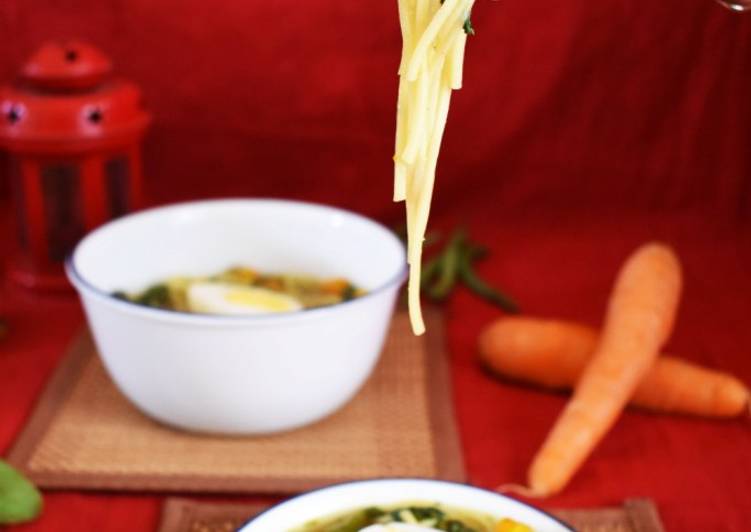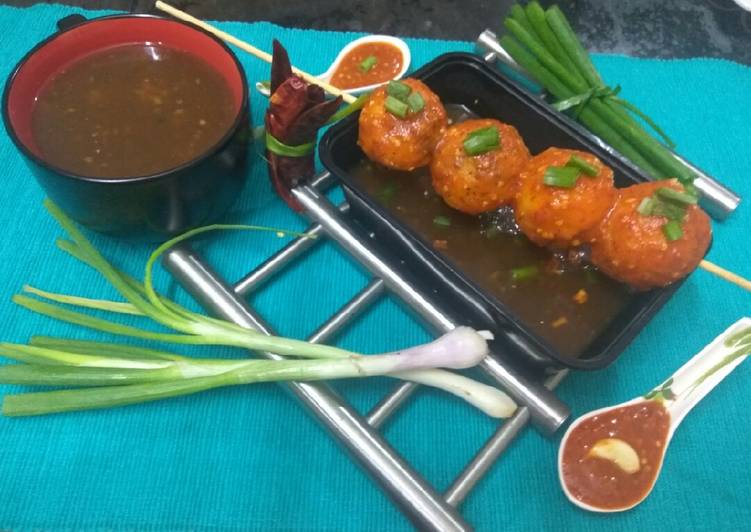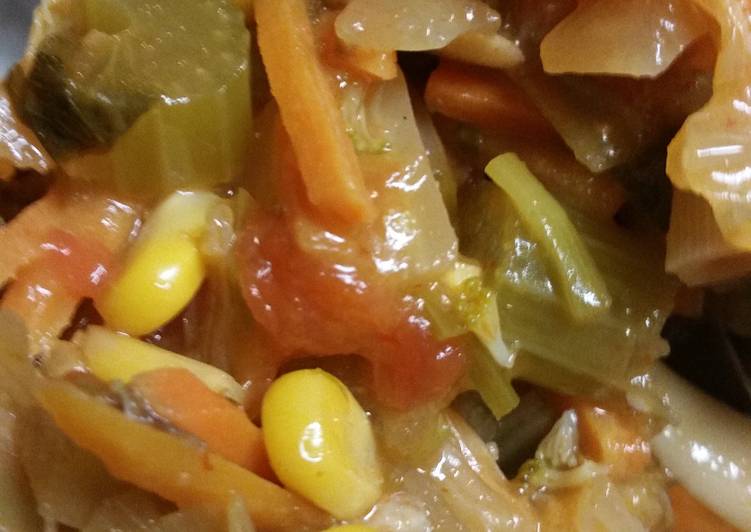
Hey everyone, hope you’re having an incredible day today. Today, I’m gonna show you how to make a distinctive dish, thukpa l tibetan noodle soup. One of my favorites. This time, I am going to make it a bit unique. This is gonna smell and look delicious.
Thukpa is a traditional Tibetan staple food suitable for the highland climate to keep the nomads warm during the long Tibetan winters enjoying a very nutritious meal. Generally speaking, noodle soups of all kinds are known as "thukpa." Thukpa is a generic Tibetan word for any soup or stew combined with noodles. ! Thukpa is a Tibetan word used for any variety of soup cooked with noodles. It is originally a Tibetan dish which is flavourful and wholesome, but mild in taste.
Thukpa l Tibetan Noodle Soup is one of the most popular of recent trending foods in the world. It is easy, it is quick, it tastes yummy. It’s enjoyed by millions daily. They’re fine and they look fantastic. Thukpa l Tibetan Noodle Soup is something which I have loved my whole life.
To get started with this particular recipe, we have to first prepare a few ingredients. You can cook thukpa l tibetan noodle soup using 15 ingredients and 11 steps. Here is how you can achieve it.
The ingredients needed to make Thukpa l Tibetan Noodle Soup:
- Make ready noodles (regular or egg hakka noodles)
- Make ready onion, chopped
- Take garlic cloves, minced
- Take green chillies, chopped
- Get chopped spinach
- Prepare chopped carrot
- Get chopped french green beans
- Take cumin powder (jeera)
- Take parsley
- Get mixed herbs
- Get soy sauce
- Get refined oil
- Make ready salt (according to taste)
- Make ready powdered black pepper (according to your tolerance)
- Prepare hard boiled egg (optional)
Generally speaking, noodle soups of all kinds are known as "thukpa." Thukpa is a generic Tibetan word for any soup or stew combined with noodles. The Napalese thukpa is the most famous one I have come across whereas the thukpa we fund in Bhutan is a little different than the traditional one. It is rather a stew than a soup and a different variety of noodles is used. Basically, any soup or stew combined with noodles can be called Thukpa.
Steps to make Thukpa l Tibetan Noodle Soup:
- Soak noodles in hot water for 3 minutes. Drain the water and keep the noodles aside.
- Boil the chopped veggies for sometime adding 1/2 tea-spoon salt until the veggies become soft.
- Separate the veggies from the broth and keep both aside.
- Heat oil in a pan and add minced garlic, chopped onion and chopped green chillies. Sautè until the onion turns translucent.
- Add the boiled veggies and stir properly.
- Add cumin powder, parsley, mixed herbs and soy sauce and stir for 1-2 minutes.
- Now, add the vegetable broth, cover the lid and bring it to boil. Check the salt, add more if required.
- Now slowly add the noodles and mix properly.
- The noodles will absorb water. Add 1 cup of warm water (if you have some extra broth you can add that) and bring to boil.
- Turn the flame off and sprinkle some black pepper and your Thukpa is ready to be served now.
- If you like egg, slit a hard boiled egg and garnish your Thukpa with it.
It is rather a stew than a soup and a different variety of noodles is used. Basically, any soup or stew combined with noodles can be called Thukpa. Different versions of the Thukpa are also popular in North eastern Indian and Nepal. Momos and Thukpa are the two Tibetan food items that are very popular in India. Thukpa, is a Noodle Soup with it's roots from Tibet and digging deeper, it's said to have come there from China.
So that is going to wrap it up with this special food thukpa l tibetan noodle soup recipe. Thank you very much for your time. I’m confident you can make this at home. There is gonna be interesting food at home recipes coming up. Don’t forget to save this page in your browser, and share it to your family, friends and colleague. Thank you for reading. Go on get cooking!

